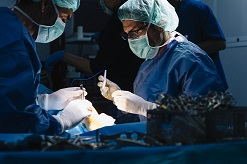
The study, recently published in the Journal of American College of Cardiology,examined the effect of mechanical heart pumps, known as left ventricular assist devices (LVADs). The devices are normally used to support patients with severe heart failure while they wait for a heart transplant.
The study shows that nearly 40% of severe heart failure patients went on to make a full recovery.
Dr Djordje Jakovljevic, Senior Research Fellow in Cardiovascular Ageing and Heart Failure within the Institute of Cellular Medicine at Newcastle University and lead author on the paper, said: “We talk about these devices as a bridge-to-transplant, something which can keep a patient alive until a heart is available for transplantation. However, we knew that sometimes patients recover to such an extent that they no longer need a heart transplant.”
The authors report that 38% of people who recover enough to allow the device to be removed demonstrated a heart function which was equivalent to that of a healthy individual of the same age.
Dr Jakovljevic explained that they now could consider the pumps as a tool which can lead to a patient recovering, rather than as a device which keeps people alive until a heart transplant is available. Although heart transplantation offers a second chance of life for patients with advanced heart failure, a shortage of donor hearts has opened doors for developments and use of mechanical devices.
Consultant Cardiac Surgeon within the Newcastle upon Tyne Hospitals NHS Foundation Trust and co-author, Professor Stephan Schueler, added: “In most cases the device reverses the symptoms of heart failure so that patients feel less short of breath and with less fatigue. In a smaller proportion of patients there is actually an improvement in heart function so that the pump can be disconnected or explanted.”


